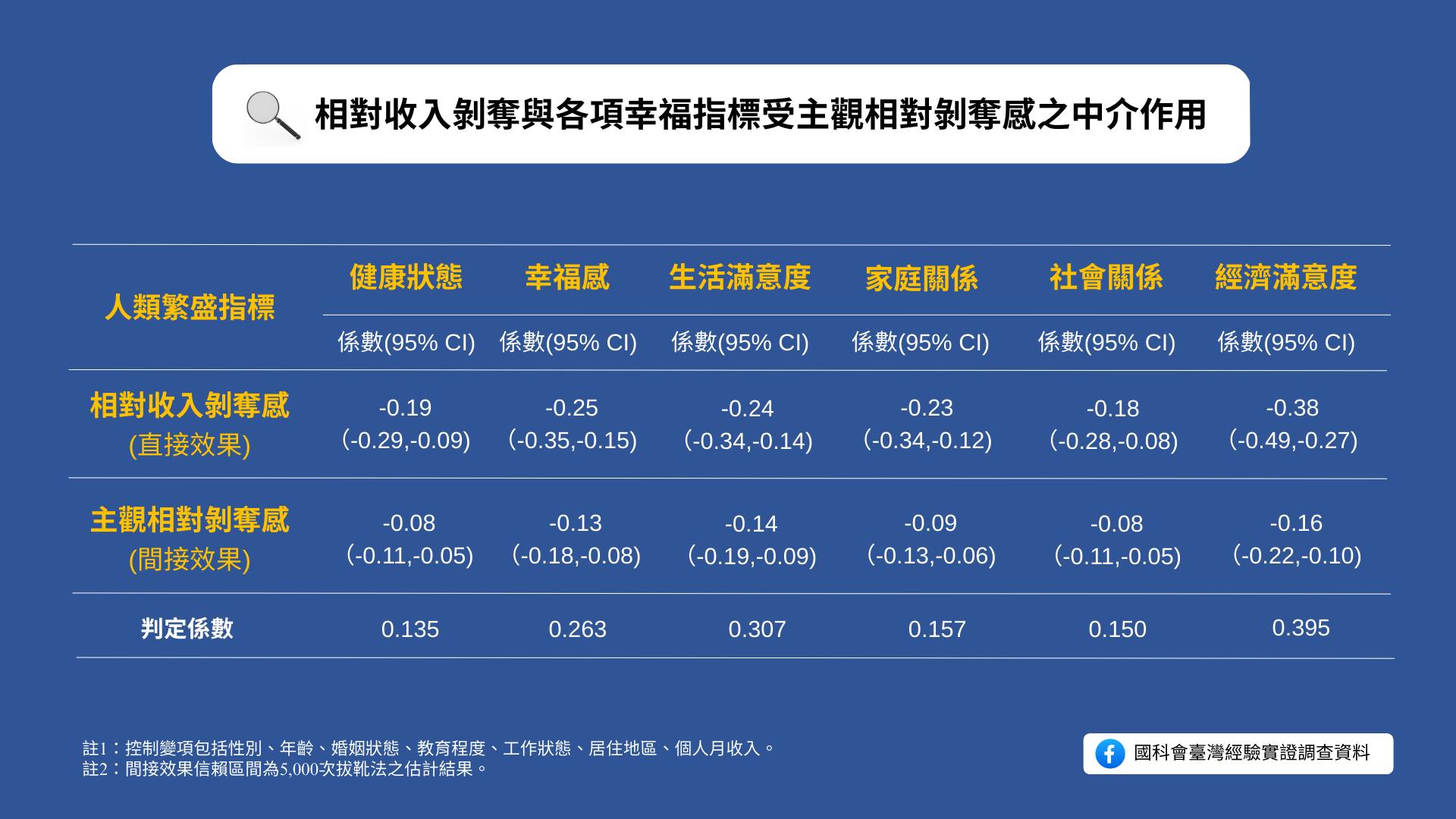Exploring the Relationship Between Income and Satisfaction Through the Lens of Relative Deprivation
💬 Discussions about income often appear online. There is still no definite figure for how much money is needed to afford an ideal life. Many young people who move to Taipei lament that one must earn at least NT$50,000 to truly “live” there, while others argue that even with a monthly income of only NT$30,000, one can still “get by.”
📊 On this topic, Guo Jundong and colleagues wrote a study using secondary data from the Taiwan Social Change Survey and the Happiness Thermometer Survey, examining the issue of relative deprivation by moving from objective income to subjective perception.
🔎 Specifically, the study mentioned the following types of relative deprivation:
🔹 Relative income deprivation: the gap between an individual’s income and that of higher-earning peers of the same age and gender.
🔹 Subjective relative deprivation: further divided into “fairness of living standard” and “comparison of living standard.” The former compares with oneself, assessing whether one’s efforts have led to a commensurate standard of living; the latter compares with others, evaluating whether one’s life is better or worse than that of people in similar circumstances.

📉 The study first measured people’s relative income deprivation and used it to predict satisfaction across different dimensions of the Human Flourishing Index. It then examined whether these satisfaction evaluations were mediated by subjective relative deprivation. The results showed that the higher the level of relative income deprivation, the lower the satisfaction across various life domains. In addition, subjective relative deprivation did have a mediating effect, but the indirect effect mainly stemmed from fairness of living standard, rather than comparison of living standard.

👉 This means that even without comparing their lives to others, relative income deprivation still makes people feel dissatisfied, believing that their hard work deserves a better life. In other words, for those who work hard, as long as objective income gaps exist, money does not seem to be “just enough.” Returning to the original discussion, then, the question of how much one needs to earn to live a good life will naturally never have a figure that everyone finds satisfactory.
If you are interested in this topic, feel free to click the link to download the prepared secondary data and continue the discussion!
Original links:Relative Income Deprivation and Human Flourishing: The Mediating Role of Subjective Deprivation

